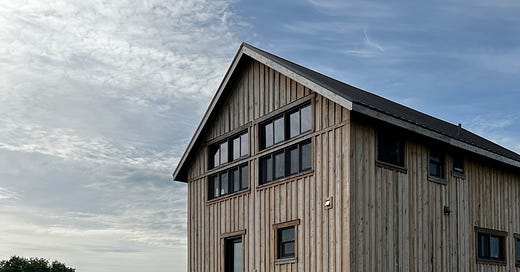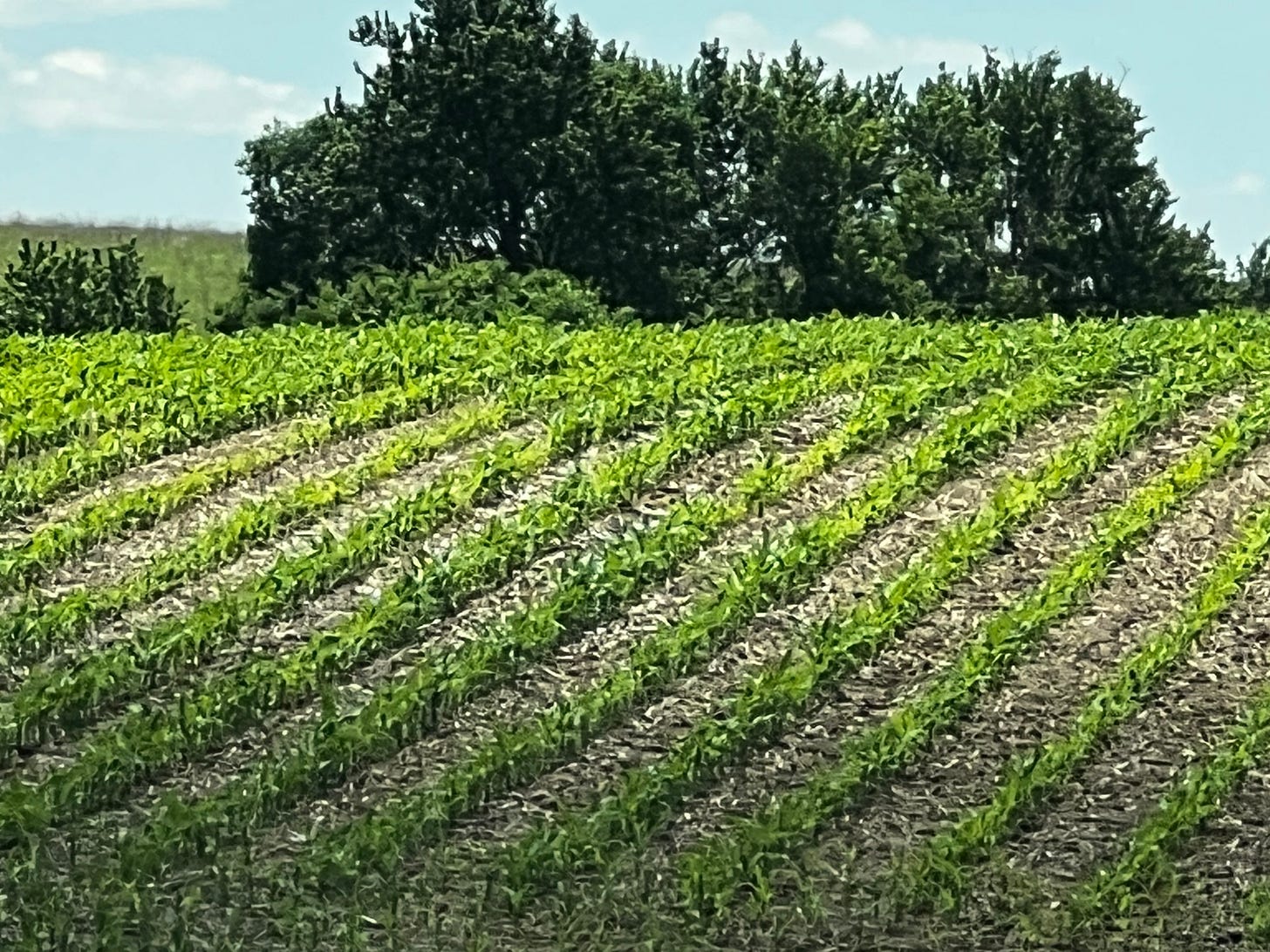Beth Hoffman raises grass-finished beef and pastured goats in south central Iowa with her husband John Hogeland at Whippoorwill Creek Farm (where they are having Burgers and S’mores Night June 8th!). She is the Author of Bet the Farm: The Dollars and Sense of Growing Food in America.
I have a confession to make.
No, I am not secretly addicted to Romance Novels or Telenovelas. I don’t eat cake in the middle of the night, nor do I like feet (I don’t).
My guilty pleasure is much more mundane, domestic even.
I love to mow.
Yes, mowing the lawn.
Riding around on my Lazy Boy-like mower (ours is electric) cutting the grass is oddly satisfying. It’s not the act riding of the mower per se, but the end result. It is the cut grass that I love, the fact that when I am done the world feels more in control, uniform, and calm.
Which feels a bit ironic. I am a woman who prides herself on her back-to-nature vibe. The kind of woman who doesn’t wear makeup and has never dyed her hair, who doesn’t mind spiders and likes snakes. I prefer cone flowers to petunias, lilacs to roses. I enjoy my music a bit on the wild side, and my days open and unpredictable.
Yet there is no denying that I physically and mentally feel better after I mow. I can get on the mower a cranky so-and-so and get off a cheerful friend. The truth is that it makes me feel calm knowing the world is organized and that I put the chaos back into place.
Certainly, I am not alone.
Theodore R. Johnson wrote in the Washington Post in 2023:
Mowing the lawn is like making your bed in public. There is a pride in the task knowing that it’s the first thing people will see. It’s a public assertion of one’s ability to manage and care for a home — property that is most people’s single biggest investment and thereby the Holy Grail of the American Dream.
And a study has shown that the smell of cut grass actually lowers stress (although the smell, researchers say, is actually the “grass crying.” Who knew? ).
But there is more to it than the smell and my desire to impress the neighbors. There is something deep within me—in all of us—that craves control and a psychological desire for symmetry.
You can see it most clearly in the rows of corn and soybeans that take over Iowa every summer. The neat, tidy, and perfectly parallel lines that—when you look at them from the right direction—appear as if an army standing at attention.
I see it as one of the reasons industrial agriculture is appealing to so many farmers. Planting in rows, killing the weeds that arise in between them, and controlling the landscape is, without a doubt, satisfying to these farmers. It displays “efficiency” in a way the whole world can see. Neighbors consider them “good farmers” (a term I hear all the time) when there are no weeds to be seen in a field. One is reckless and irresponsible if giant ragweed or mustard is growing amidst the bean plants.
And yet this one human desire—to master the landscape and make it do what we want—now means that Iowa is the most altered state in the Union. Since the moment White settlers arrived, we started tilling up the prairie and knocking down the trees in order to plant. According to the Iowa Natural Heritage Foundation
Iowa has lost 99 percent of its prairies, 95 percent of its wetlands have been drained, and 75 percent of its forests have been cut.
This mastering of the pesky environment continues on today. A new land owner in our area (a local company who purchased the land solely to farm it) pushed over all the trees along the creek so as to squeeze in a few more rows of corn. They took the bottom ground that usually floods (which means it is a wetland helpful in cleaning water) and tiled it all, making sure the water instead rushes out to the creek when it rains so that the corn roots do not get soggy.
Yes, humans gravitate toward a manicured landscape, to areas that don’t flood, and where rows of efficiently growing corn will reign supreme. But sometimes we let our desires get the best of us, without thinking of the long-term consequences of our actions or of God’s other creatures who also have a right to survive in the trees we aim to cut down.
I think the Bible got this one right:
Let your moderation be known unto all men. The Lord is at hand. ~Philippians 4:5
So go ahead—mow a yard. But let’s be sure we don’t mow over the trees and the wetlands we also all need to survive.
I am a proud member of the IOWA WRITERS’ COLLABORATIVE






Love this, Beth!
Moderation is the key word in all parts of our lives. You created a picture in my mind of you as a happy mower. Made me jealous of your machine.